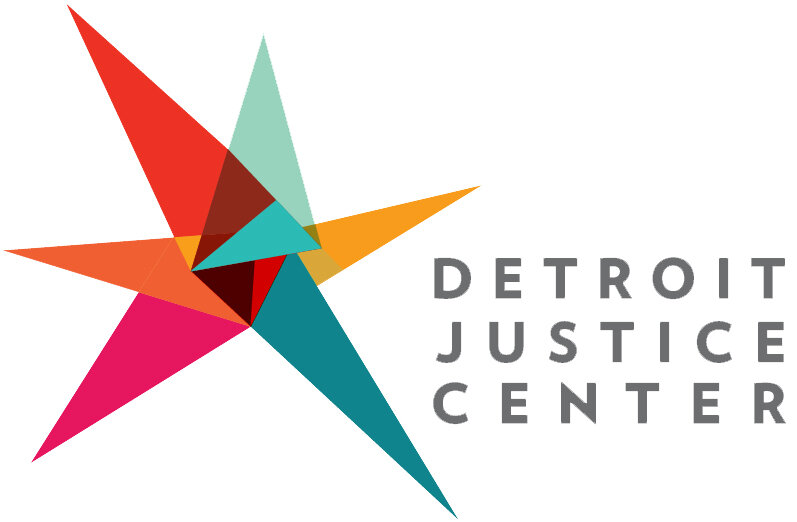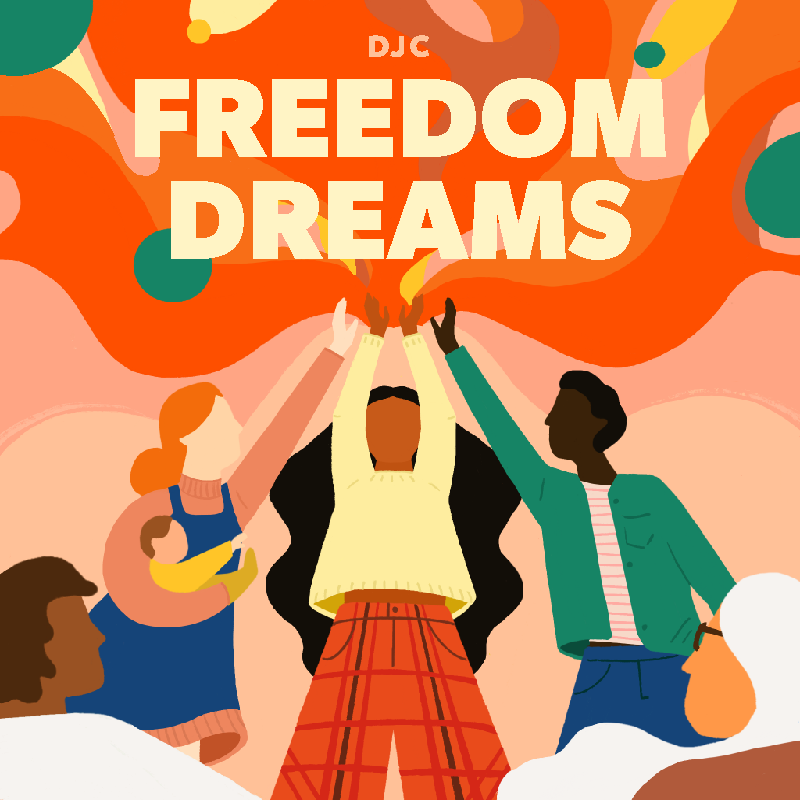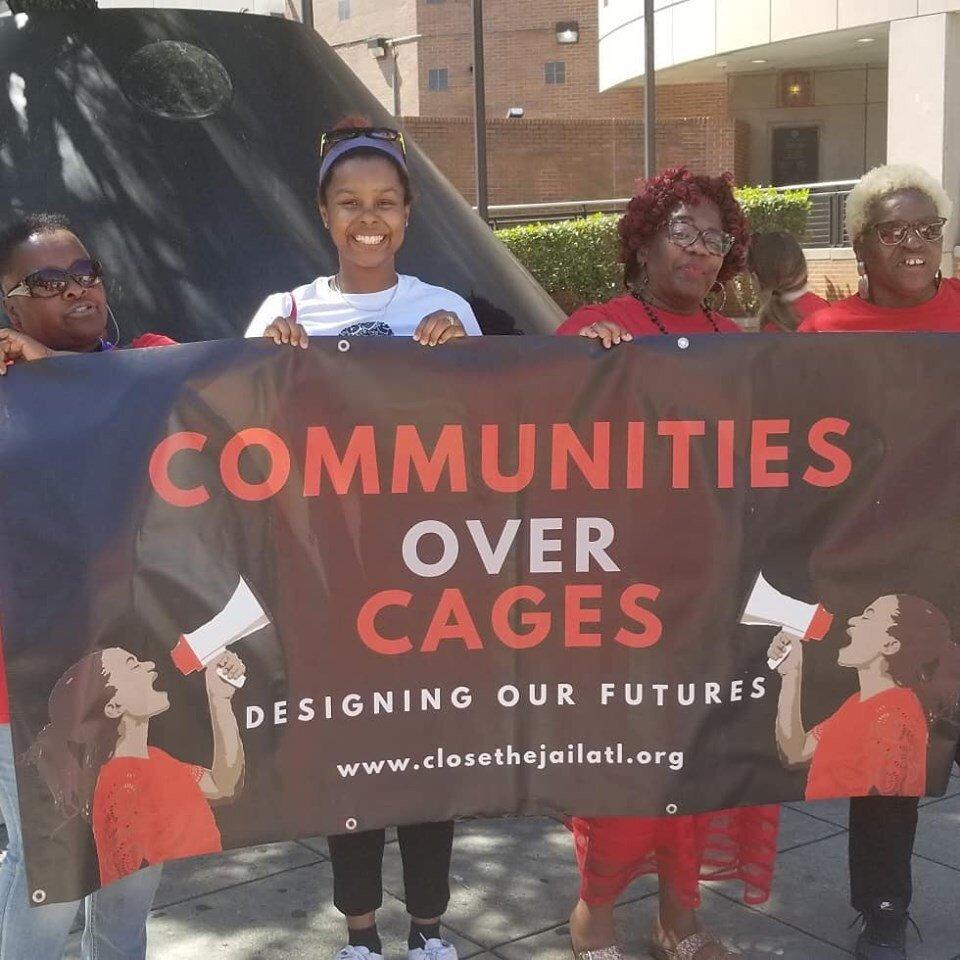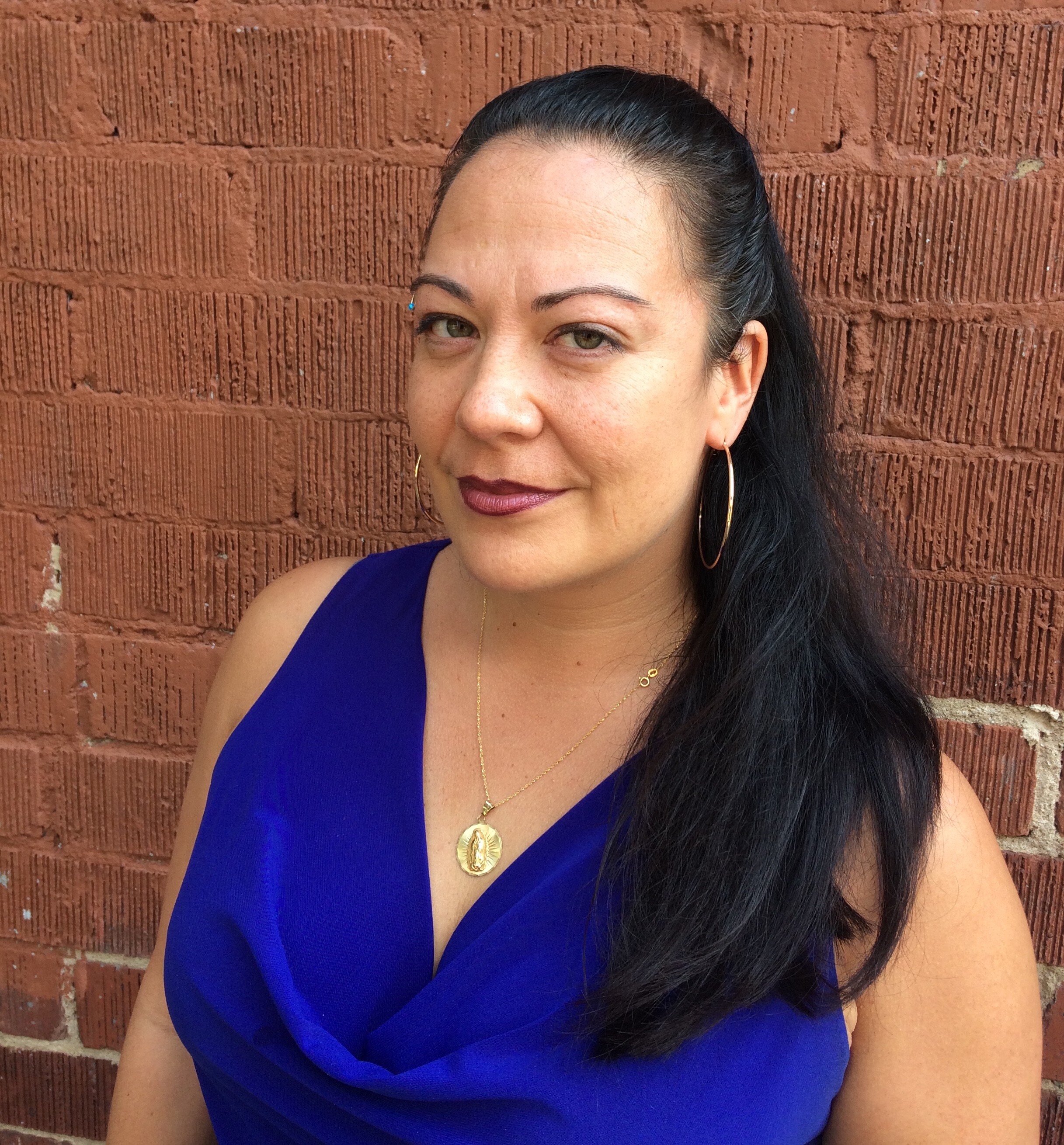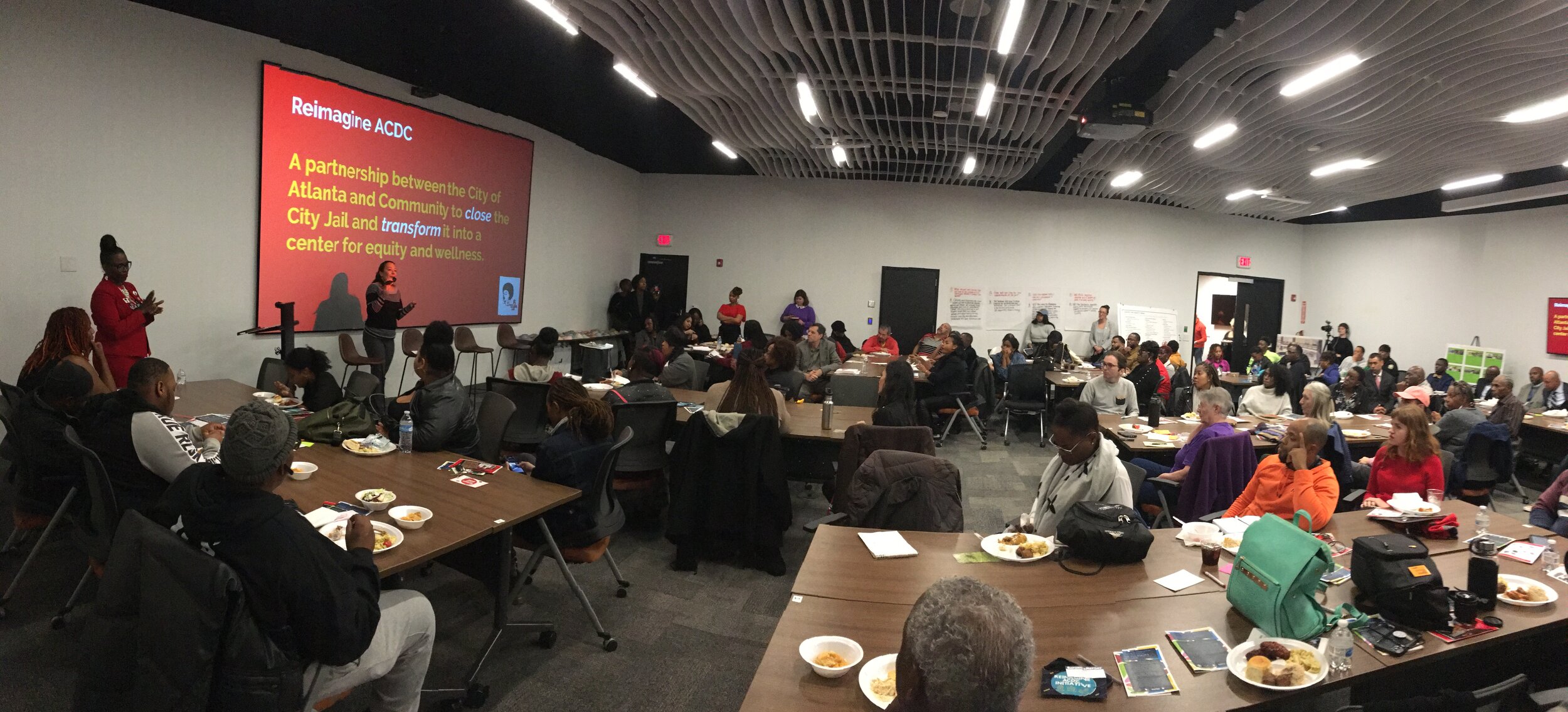In this episode, we discuss the history of the Atlanta City Jail, broken taillight policing, and the power of community organizing to build new futures without jails. We interview Marilyn Winn, who organizes Women on the Rise, and Xochitl Bervera, director of the Racial Justice Action Center. These two activists and community organizers from Atlanta tell us their story of using community organizing and coalition building to not only end prison structures but to dream new futures and build new things where these prisons once stood. They took strategic action, foregrounding the voices of the incarcerated and formerly incarcerated, to change the narrative around injustice and educate the public to bring them into the action. Their Blue House brought together many communities to share space, ideas, and efforts. This episode reminds us that abolition is not an abstract or utopian ideal but something happening every day. Listen in to hear about the things these women made happen, the stories they changed, and the communities they bridged.
To read more about anti-policing work, check out The End of Policing by Alex Vitale.
Marilyn Winn is the Co-Founder and Executive Director of Women on the Rise, a grassroots organization led by formerly incarcerated women to reduce the number of women under correctional control in the state of Georgia.
In 2011, as a volunteer member of 9to5 Atlanta Working Women (9to5) and Co-Chair of the Board of Directors, Marilynn was the Lead Organizer for 9to5’s initiative to “Ban the Box”; an effort to remove questions related to prior felony convictions from employment applications in the City of Atlanta. In collaboration with the Solutions Not Punishment Coalition, Marilynn was instrumental in passing legislation in the City of Atlanta and Fulton County to implement a two-year pilot Atlanta Fulton County Pre-Arrest Diversion Initiative and passing legislation to reclassify marijuana legislation to a non-arrest offense for less than an ounce with a minimum fine of $75.00.
Image from Just Leadership USA: https://jlusa.org/leader/marilynn-b-winn/
In collaboration with key players, Marilynn won Bail Reform legislation in the City of Atlanta in 2018. Currently, Marilynn is working on the “Community Over Cages” #Close the Jail ATL, a campaign that will close the Atlanta City Detention Center and repurpose the facility into an Equity Wellness and Freedom Center that would ensure the community services not handcuffs. On May 28, 2019, Mayor Keisha Lance Bottoms signed legislation to close and repurpose the Atlanta City Detention Center.
Xochitl Bervera is the co-Founder and Director of the Racial Justice Action Center (RJAC), which sunset in 2020. Xochitl is a queer, Chicana/Latina organizer, lawyer, educator and movement builder with over 15 years of experience in grassroots organizing, media and policy advocacy, and training and technical assistance, mostly focused on ending criminalization in Black and Latino communities. The RJAC engaged in transformative organizing to build the grassroots leadership, power, and capacity of marginalized communities to win political, economic, and social transformation in the Atlanta Metro Area.
The RJAC’s primary work involved supporting and incubating their grassroots projects, Women on the Rise and the Solutions Not Punishment Collaborative, investing in their membership & the campaigns they wage. They also previously incubated the Atlanta/ Fulton County Pre-Arrest Diversion Initiative. RJAC also co-led the Communities Over Cages: Close the Jail ATL Campaign with Women on the Rise and continues to work with the Reimagine Atlanta City Detention Center Taskforce, serving on the Advisory Committee and continuing the work to fully implement campaign goals.
Episode Transcript:
ARCHIVAL AUDIO: I call upon the youth of the world to assemble 4 years from now in Atlanta, United States of America.
CASEY: The city of Atlanta was set to host the 1996 summer olympics. And they had to get ready.
MARILYN: The city decided once we were granted that opportunity that we gonna beautify Atlanta, we gonna tear down, oh, projects and build new apartments and just make all these different parks and all the different things.
AMANDA: This is a familiar story. We experienced something similar when Detroit hosted the Superbowl back in 2006. The city administration thinks, “Folks from all over the world are about to show up. We’ve got to be ready.”
MARILYN: And what happened was Atlanta created a homeless population. We had one, but it wasn’t so visible. I mean, you really had to look to see if a person was homeless.
CASEY: This is Marilyn Winn. She runs Women on the Rise: A grassroots organization led by women targeted and/or impacted by the criminal punishment system.
MARILYN: The city of Atlanta has always been a city with broken window policing. And I’m formerly incarcerated so I was part of its broken window-ness.
AMANDA: Marilyn is part of a coalition of activists working to close the Atlanta jail that was built just before the 1996 Olympics. This is one of many campaigns across the country to close jails or block new jails. They’re happening in cities including St. Louis, Philadelphia, Baton Rouge, New York, Milwaukee, LA, Seattle, and more. What makes the fight in Atlanta special is that they’ve not only worked to shut down the Atlanta City Jail, but they’re also showing us what we could build instead. But back in the mid-1990s, the city was intent on locking up poor people.
MARILYN: We had a jail, but they built the extra jail to hide the homeless population from the people coming to visit the Olympics. The majority of the people were there for nonviolent offenses. They were there for traffic violations, simple shoplifting, jaywalking, spitting on the sidewalk.
ARCHIVAL AUDIO: Ladies and gentlemen, welcome to the Opening Ceremony of the games of the 26th Olympiad: The Centennial Olympic Games.
AMANDA: I’m Amanda Alexander, Executive Director of the Detroit Justice Center.
CASEY: And I’m Casey Rocheteau, Communications Manager at DJC. Today on Freedom Dreams: What’s it gonna take to close the Atlanta City Detention Center and build something beautiful in its place?
AMANDA: Maybe even a center for wellness and freedom? We are joined today by two incredibly creative and powerful women from The ATL. Xochitl Bervera who served as director of the Racial Justice Action Center (RJAC) until 2020. And Marilyn Winn who you heard earlier. And now it’s time for our first ever Freedom Dreams history minute. Take us there, Casey.
CASEY: When I was thinking about the history behind this episode and why people felt super comfortable just sweeping people off the streets and putting them into a jail, it lead me back to a historical context that’s centuries old, really. It’s this idea of creating a problem and then using it as justification to criminalize people…whether that’s The Commons in Europe in the 1730s where they’re clearing out unlanded peasantry and telling them the land they’re holding in common with each other actually now belongs to the landed gentry…to what happens in the South during Reconstruction with the Black Codes, right? So, it’s this move to create a system where people are disenfranchised and impoverished and then you tell them that they are a criminal for being these things that you say they are. And then here they’re using it as a justification to then put all of those folks into the city jail.
AMANDA: Casey, you’re right to take us back to the Black Codes and convict leasing and the ways that the law has long criminalized black people and poor people and their movement, up to more recent examples, like broken windows policing. Broken windows essentially created this revolving door of unhoused people who were picked up by police on what were essentially crimes of poverty. They would cycle through the court system, into jails, and then back out on the streets. A recent study in New York City found that of the 800 people who spent the most time cycling through the city’s jails, more than half of them were unhoused and the top charges for why they were in the jail were essentially crimes of poverty. So, things like petty larceny, trespassing, and drug possession. Over that time, the city spent $30,000 per person, jailing those 800 people. $30,000 per person! And, of course, we know that supportive housing would be less costly than that. Essentially, this is a way of continuing to address problems of homelessness by criminalizing poverty, locking people up, having jail populations explode–the jail population has tripled over the last three decades. That brings us up to today, where folks in Atlanta and other cities are saying that people are in jail for underlying problems of poverty, of lack of housing, of substance use issues, of mental health issues. The thing to do is not to further police and cage people but instead to address those underlying issues. And that’s what folks in Atlanta and elsewhere are doing.
CASEY: And now, we’re so honored to welcome Marilyn Winn and Xochitl Bervera to Freedom Dreams.
—–
XOCHITL: It was scary to start talking about closing the jail. I mean, that was a whole, you know, there’s a, the man who is the head of our Atlanta Department of Corrections, the chief jailer of that jail is a much beloved and he’s now the sheriff of Fulton County. And he you know, he used to put his, he puts inmates as he called them out into the world to clean up garbage. He, so he engages in convict leasing, he’s an empire builder. So he built that jail and then brought in more resources to do more programs because people who are jaywalking really need a program. Right. And there should be re-entry for people who have done two weeks where, I mean, it was that kind of creating of a story of what a great place this is. And the city council would get their reports from the Department of Corrections and, you know, applaud at how many bags of garbage that he had prisoners picking up from their districts. And so we knew it was formidable. It was $32.5 million a year spent on that jail that came out of our general fund and hundreds and hundreds of employees. And so we knew it was a battle. So that was definitely why, you know, thinking of strategy, why we had to start starving the beast and pick away at these different things and bring down the population so that some of the different just we could highlight, you know, what’s really going on there, what it costs, et cetera.
AMANDA: So Xochitl it’s really powerful what you’re saying here. Like, it, wasn’t just the empire that was built, but the story around it, too. And so while you’re starving the beast and getting people out you’re also needing to combat that story. Right? And so what was that about like, like how did you all work on some of the narrative shifting, too?
MARILYN: We started to get the real stats and the most important thing to me was to let the public know, getting the community engaged in it, giving them the, feeding them information. Did you know this? Do you know this? And all of that kind of stuff that kind of brought them along with us. Oh, no, we didn’t know how the money was going there. We didn’t know that they was using people to clean up yards. We didn’t know that people were going out, working on the side of the road from the jail and all of that is convict leasing. And so they didn’t, people really didn’t know and people really didn’t like it. And they didn’t understand until we got involved and start talking about closing the jail and working on different ordinances what was really happening in the jail because a lot of people actually thought that they didn’t know what was in the jail. They thought people, the first thing they said, “Well, what you’re going to do with the criminals?” It’s not criminals there. It’s only people there who have violated a city ordinance or people who are too poor to buy a tag decal or somebody might not have renewed their license…even a broken tail light! You can drive through anywhere and don’t know you got a broken tail light, but if you in one of them low-income neighborhoods, you’re going to jail because they have the discretion to arrest you or not to arrest you. So getting the information out to the community as to really what’s happening, who’s really sitting in that jail and let them know that any given time…how many times you done walk across the red light because you didn’t want to stand there? How many times you done spit on the ground? You know, these things. And actually, I think in one of the meetings in city council, one of the, who is now the president of city council, she was asking the same chief of police, “So are you telling me I could go to jail for spitting on the sidewalk? Jaywalking, was it jaywalking?” She said, “Are you really telling me I could go to jail for jaywalking?” He said, “Yes.” She said, “Oh my God.” So a lot of people don’t know. So a lot of people got caught up in that. And so just to educate the community, which brought them in as well, because a lot of them were now having to take care of people that have been in jail for a broken taillight, been in jail for suspended license or not having the proper decal. So now that brought something to their memory. “Oh, so my brother was there. So that’s the reason my brother can’t get no job. This is the reason he can’t get nowhere to live is because of those type things.” So I think the biggest piece for me was to bring the education from what’s happening in the jail to the community to let them know what’s there, instead of assuming that what is there.
AMANDA: According to the Community over Cages campaign, The Atlanta City Detention Center was built for over 1100 beds. But because of some super effective reforms that activists fought for like ending cash bail…reclassifying marijuana charges…breaking the city’s contract with ICE…creating a pre-trial diversion program…the jail population is down to just a few dozen people.
XOCHITL: And I think is, is I think exactly, exactly the strategy that we had. And then we also had, you know, it’s just that thing of having people speak directly to their experiences. So there’s, I mean, women on the rise is a, is a membership-based organization of, of women, some of whom been inside ACDC, some of whom like Ms. Marilyn said, have, you know, had to bail folks out or had to, you know, have people, house people and feed people while they’re trying to get a job and get housing because, you know, they got arrested and spent two weeks inside for having a tiny amount of marijuana on them. And now they lost their job and now they lost their housing. And just even being able to say, and have people speak for their own experience, because the truth is that that chief of Department of Corrections used to go into city hall and spin tales about who was in there and how much they loved it. I mean, people, according to him, people think it’s like a hotel stay, you know, it’s the best place where they can get help. And so to have the direct voices and on, on the immigrant side as well, our, our we have an Alliance of, Oh, close to 50 organizations that have been part of this fight, this campaign, since it launched in 2018. And the, our partners who focus on immigrant justice work. So the Georgia Latino Alliance for human rights and project South, and they did a whole report that was all voices of folks detained inside, talking about conditions, talking about the sort of forced labor aspect. And just getting those stories and those voices, those that truth out there along with like Ms. Marilyn say just the basic facts that get so spun. And so twisted was, was really critical.
AMANDA: So Xochitl, you started to talk about the coalition that you all have built. That is just, I mean, it’s such a dreamy thing. I know a lot of us in different places talk about like, can you like, can we connect all the dots in a really consistent way? Because you know, those conversations come up in meetings all the time, you know, of people saying, well if we, you know, get the jail shut down, let’s make sure they don’t reopen it as an ICE detention center, or, you know, like people are bringing that, you know, the, those insights together all the time, but it doesn’t always become a coalition that actually leads to these types of victories. So can you talk about how you guys turned those, you know, like shared insights and shared connections into a coalition that’s moving work forward together?
XOCHITL: Yeah, yeah. Cause it was such a, it’s such an essential thing and it is such a challenging thing, right. It’s sort of like the core of everything and in terms of our movement and, and, and where we’re headed toward abolition and whether we can come together. And as I say, I think for us, it really started because the Racial Justice Action Center, when we started as kind of an experiment, one of the main tenants that we were experimenting with was how much can we build across community? So bringing folks together who maybe speak different languages, who were from different communities who have, you know, who have been incarcerated, haven’t been incarcerated, and queer and trans and cis and straight. And, you know, all of the, all of the different ways, especially if were folks are impacted by criminalization, but we often don’t really work closely together. And so it was kind of a really important part of, you know, what we called the blue house experience with the blue house is where we all, all of our organizations came to be, came to have office space and shared space. And and we started to do a lot of just like work together trust-building and you know, engaging in embodied leadership, connecting with one another, because if you don’t have relationships and you don’t have trust, then it’s very hard to build politically.
CASEY: It sounds like like putting together the team, like the Lord of the Rings team or the Avengers or something where you get like one person, and their whole crew flies in.
MARILYN: Okay. It does feel like that. So when we call for our Alliance members to come, it’s almost not those 50, but it might be a thousand folks coming. All of them have, you know, members and staff and everyone else who participates.
AMANDA: After a break, we’re gonna hear how the folks in Atlanta started to imagine what they could build in place of the city jail, now that they’d all but emptied it.
And now back to our interview with Marilyn and Xochitl.
AMANDA: So then the idea came about right, to not just shut it down, not just starve the beast, but to build something else. Ms. Marilyn, can you tell us about how that came about?
MARILYN: Yeah. You know, we, we out at Racist Justice Action Center and Women Rise and Solution, Not Punishment. We always feel that we don’t win something by just ending something. And then there’s a big building there. So if you don’t put something in the place of the wind, then it can always be turned back to what it, you know, what we were fighting against. So I know from being formerly incarcerated, there are many barriers that we face and there’s many opportunities that we don’t get the opportunity to engage in. So I thought, we together thought about a center for wellness and equity and freedom. We want somebody to have, we, we say wellness and freedom, actually the mayor put the equity part in there. We said wellness because we want people to have wellness, be able to go to one spot and get everything they need, because sometimes when a person has been faced so many barriers and they may come in and say, well, I want a MARTA card. Okay. We don’t have it here, go cross over town to do this and that and the other. They never make it across town. So if we can have everything in one building, just go up to another floor, they don’t ever have to leave. And so that would be that, that wellness and freedom center, and you free to come in and get whatever you need. And so it was just, I just felt like we could use that. We just felt like we could use that space for a space for that wellness and freedom for folks that have been impacted by the system. They can come in that same spot. You don’t have to look for the spot cause you know where it is. It’s just going to be another big, beautiful, free building with windows and gyms and stores and place where you, people can come and just sit down, childcare, temporary housing, all of those things, education, employment, development, healthcare, anything that a person may need, they can come in there and get that service in that same in a central location, downtown
AMANDA: Marilyn, how would you want people to feel when they walk into the center?
MARILYN: I would like for them to feel welcome. I don’t, it don’t, you don’t have to dress up to come here and y’all about to make me cry. You don’t have to dress up, just walk in and be free to get what you need without having to have handcuffs on OR be thrown in a cage because I have mental problems or I’m illiterate or whatever I am. I don’t have to be looked down on. I’m welcomed to this place.
AMANDA: It’s beautiful. Beautiful thought. And you’re making it real. Yeah. Yeah.
MARILYN: Every time I think about it and things that we’re going through right now it, it just makes me want to cry. I mean, I’m happy on one end and I’m angry on the other. I’m not sad. I’m angry on the other because of the pushback and the things that we’re going through right now. And but it’s still going to happen. Not walking away from this fight, we gonna fight this to the bitter end.
CASEY: Always our last question on the podcast. So it’s called freedom dreams. So what we want to know is what are your freedom dreams for your work? You know, like what, you know, 50 years from now is the legacy that you hope to leave behind with what you’re doing now?
MARILYN: I think my freedom dream would be a world without police where people are actually free and uncaged and yeah, have things that they need these central things that they need, which is a human right for us. That that would be my freedom dream
XOCHITL: I like that dream. I think if I, if I, you know, just building on it’s, like you said, 50 years and sort of legacy and stuff, it’s for me, I definitely feel like there Is a different Atlanta that’s possible, and it requires both different policies and different choices around the use of resources and divesting from criminal justice and investing in all kinds of other things. Iit also is about our communities and continuing to build and strengthen the solidarity and the unity. We live in such strange times and I feel like Coronavirus has helped highlight that for so many people, but so strange how kind of out of right relationship we are oftentimes to each other, and then to the other living elements of the earth we live on. And I, I have a dream that 50 years from now because of all these shifts, that there’s also a different relationship to those things and where Ms. Marilyn also gets to retire and doesn’t have to work, you know, past when she’s exhausted and where all of u, aren’t trading our health to stay in, you know, the struggle for justice and where there’s, um, just some of the basic, you know, care for our elders and, um, healthy foods and all of the things that actual human beings thrive off of.
AMANDA: That’s our conversation with Atlanta organizers who worked to empty their city jail and imagine what could be built instead with the tens of millions of dollars that had been going towards locking people up. It shows the power of fierce organizing and it’s a freedom dream that people across the world can learn from.
CASEY: When we talk about abolition, there’s this idea from people who don’t identify as abolitionists that we’re sort of talking about this Utopian goal, right, of untested ideas, of uncharted waters. And that can be really scary, right? And so for me the key to this episode or why this episode is important to us is to acknowledge abolitionist exercises are happening in practice everyday. And we’re just trying to showcase that this is happening in Atlanta. Here’s what it takes to do this in your own community. It is possible. It’s not actually pie in the sky and it does not lead to this crazy sure in, you know, rampant murders when you do this kind of thing.
AMANDA: Yeah, I think for me it’s really about showing the fact that organizers are making this change happen right now. Just like you’re saying, Casey, it’s not this untested thing. The other important aspect is that what the Atlanta organizers are showing us is that it’s not just about tearing something down. Emptying the jail wasn’t enough. Shutting the jail wasn’t enough. It’s also about what we’re building up instead in order to undo some of the harms of mass incarceration and build the communities that we need. So I think it’s the fact that these organizers are offering us this affirmative vision of the world that we could be building. Of the types of cities that we could be building that go far beyond just reforms or tearing things down and to me that’s one of the most important parts of this example.
